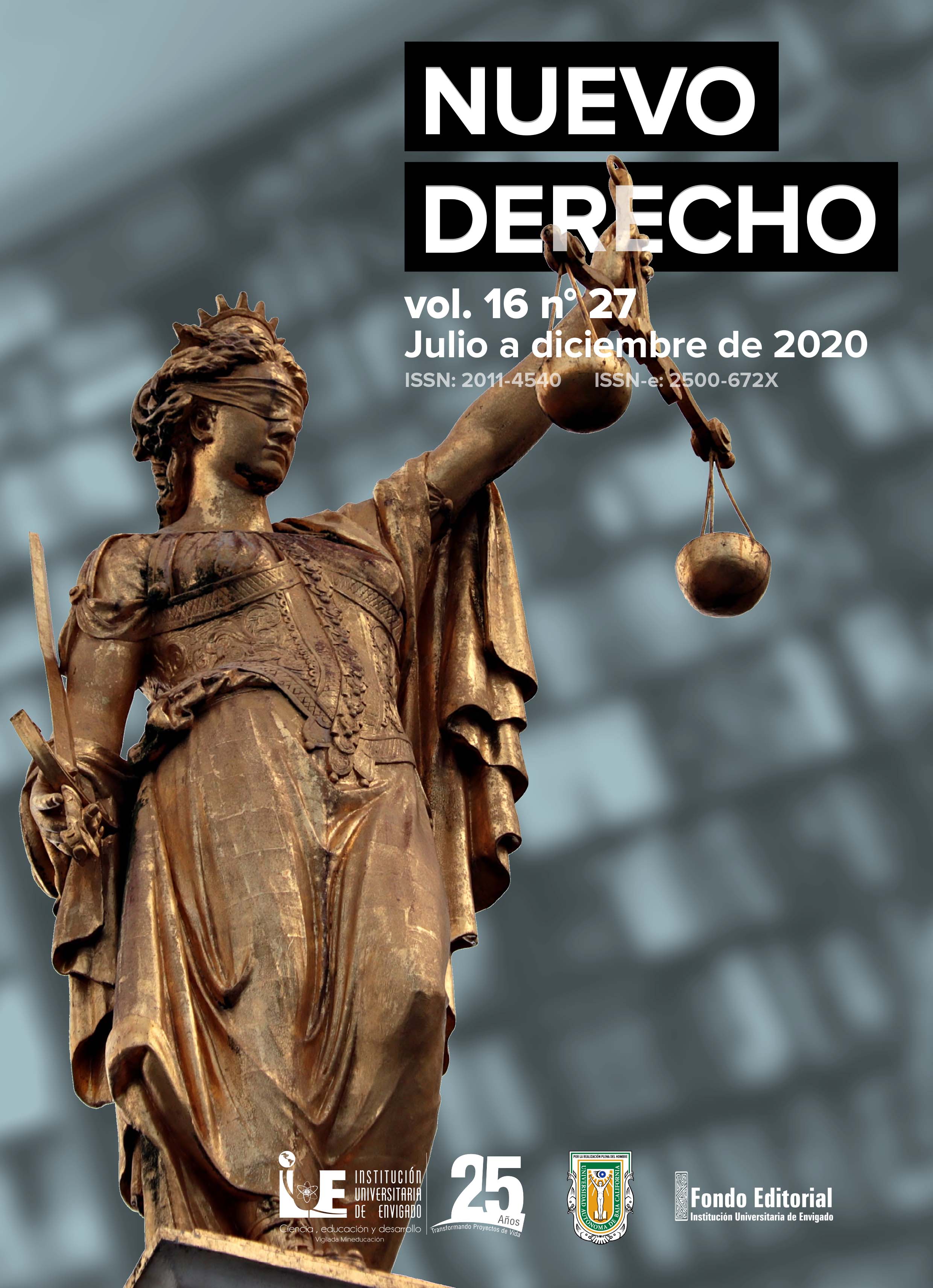Critical study of the criminal justice and exception system in Mexico
DOI:
https://doi.org/10.25057/2500672X.1357Keywords:
Crítica, Sistema, Excepción, Justicia PenalAbstract
This research work seeks to carry out a study based on the idea that the criminal justice system in Mexico has developed three different systems in criminal justice, an accusatory system, alternative means of dispute resolution and an exception system. That is why it is worth studying and addressing one of the previous classifications presented by criminal justice in Mexico, the exceptional criminal system, which has been descriptively incorporated into the constitutional text, and secondary norms, whose characteristics put into contradiction to the accusatory system, for enunciating in an operative and invasive way certain legal figures that seek to restrict and limit the fundamental rights of the parties in the criminal prosecution, thereby generating a series of questions that show that criminal justice in Mexico is not of the all guarantor. Therefore, and following the postulates of democratic systems, of granting a maximum of legal security in the criminal process, we can establish that the exceptional criminal system is far from being a system that goes hand in hand with the Constitutional State, for on the contrary, with its characteristics, elements and functions, it is more similar to the operational aspect of an authoritarian and inquisitive state.
References
Aguilera, R. (2015). Criminología Política. México: Res Pública.Agamben, G. (2003). Estado de Excepción. Buenos Aires: Adriana Hidalgo Editora.
Althusser, L. (1974). Ideología y aparatos ideológicos de Estado. Buenos Aires: Nueva Visión.
Bergman, M. (2009). Confianza y Estado de derecho. En Marcelo Roserantz Bergman (coord.), Confianza y derecho en América Latina, pp. 77 - 99. México: Fondo de Cultura Económica.
Carbonell, M. (2008). Los juicios orales en México. México: Porrúa.
Carbonell, M. y Ochoa, E. (2008). ¿Qué son y para qué sirven los juicios orales? México: Porrúa.
Díaz, E. (1984). De la maldad Estatal y la Soberanía Popular. Madrid: Editorial Debate.
Ferrajoli, L. (2001a). Derecho y Razón. Teoría del Garantismo Penal (5ª ed.). Madrid: Trotta.
Ferrajoli, L. (2001b). Derechos y garantías. La ley del más débil (2ª ed.). Madrid: Trotta.
Jakobs, G. y Meliá, C. (2003). Derecho Penal del enemigo. Madrid: Civitas.
Maresca, M. (2005). Antes de leviatán, las formas políticas y la vida social en las crisis del imperio de la ley. Derecho penal del enemigo. En Guillermo Portilla Contreras (coord.), Mutaciones de leviatán legitimación de los nuevos modelos penales, pp. 87 – 118. Madrid: Universidad Internacional de Andalucía.México.
Cámara de Diputados del H. Congreso de la Unión. (2019). Constitución Política de los Estados Unidos Mexicanos. Recuperado de https://mexico.justia.com/federales/constitu-cion-politica-de-los-estados-unidos-mexicanos/titulo-primero/capitulo-i/
Polainos-Orts, M. (2008). El derecho penal del enemigo como garantía de la juridicidad demo-crática Estatal. México: Flores editores y distribuidor.
Santacruz, R. (2015). La prueba en el sistema penal de excepción. México: Porrúa-Print.
Weber, M. (1994). Economía y sociedad. México: Fondo de Cultura Económica.
Weber, M (1989). El político y el científico. Madrid:Alianza.
Zaffaroni, E. (2007). El enemigo en el Derecho Penal. México: Ediciones Coyoacán.
How to Cite
Downloads
Downloads
Published
Versions
- 2020-11-30 (4)
- 2020-11-30 (1)
Issue
Section
License
Authors should declare that the article is an original work that has not been totally or partially published in any print or electronic media, which has not been submitted simultaneously to another publication and that is not currently under evaluation in another publication. On the other hand, I leave (we) evidence that the statements made therein are the sole responsibility of the / the authors / is.
All data and references to already published material are properly identified with their respective credit and included in the bibliographical notes and appointments that stand out as such and, in cases that require it, I have the proper authorizations for those with the respective rights; in case of any dispute or claim relating to intellectual property rights, we take responsibility exonerating responsibility to Nuevo Derecho.
If the article is approved for publication, the authors transfer the copyright to the journal New law to publish, distribute electronic copies and included in indexing services, directories or databases of national and international data on Open Access under the Creative Commons 3.0 Attribution-Noncommercial (CC bY-NC-SA) by which the authors retain their copyrights and allow them to others copy and distribute your work provided they recognize the corresponding authorship and the work is not used for purposes commercial.
Therefore, new law does not retain the rights to reproduce or copy (copyright), so the authors will have the final versions, to disseminate them in institutional repositories, personal blogs or any other electronic or print media, with the sole condition to make mention of the original source of publication, in this case Nuevo Derecho.

| Article metrics | |
|---|---|
| Abstract views | |
| Galley vies | |
| PDF Views | |
| HTML views | |
| Other views | |




